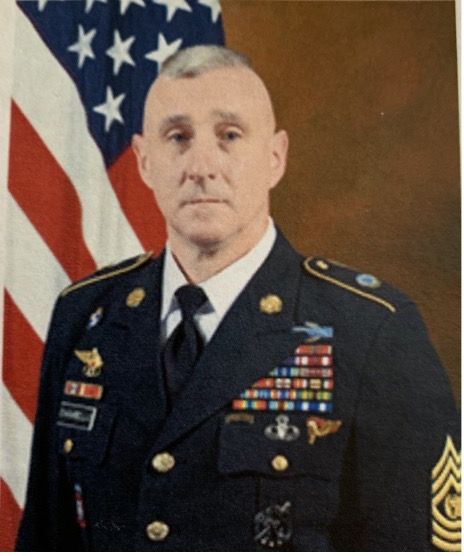Profile of a Servant Leader: Robert Fleming and the Malayaka House Orphanage
During a service trip to Uganda in 2005, American Robert Fleming’s life was forever changed when he encountered a pregnant woman named Sara living on the street, across from his hotel. Recognizing her dire circumstances, Robert offered his help. Despite Sara's mental illness and confusion about her identity, he continued to visit her daily, hoping to be there when she went into labor, knowing that the baby's survival depended on immediate assistance.
Robert’s vigilance paid off when he found Sara in labor one night and rushed her to the hospital. A few hours later, he found Sara alone, covered in blood. The newborn baby was asphyxiating in a trash can. Robert retrieved the baby from the trash can, swiped the fluid from her mouth and nose, and rushed her to the doctors.
The hospital staff insisted Robert care for the baby girl since the mother refused to take her. Even though he didn’t know the mother, beyond a few brief conversations, he was obliged to take the child because he “brought the mother to the hospital.” This unplanned responsibility led Robert to seek guidance from the women at his hotel, who generously shared their knowledge on caring for a newborn. Robert's life was forever changed as he became an unexpected father to the baby girl he named Malayaka.
Robert initially thought that he would care for the infant for a few days until the authorities came to get her, and then he would return to his easy life of traveling and teaching tennis. But when the authorities showed up the next day, it was not to get the baby. They had brought another child, Bobo, a severely injured three-year-old. A few days later, they returned with Viola, an eleven-year-old with an infected wound. The number of children grew as triplets sick with pneumonia and malaria were also entrusted to Robert's care.
Faced with the choice of abandoning these children or dedicating himself to their well-being, Robert made the selfless decision to remain in Uganda. He emptied out his 401(k), rented a house, hired some local women to help care for the children, and established the Malayaka House orphanage, where each child would find a loving home and become part of a forever family.
Over the years, Malayaka House has flourished into a close-knit community with nearly fifty children, supported by Robert, his partner Bea, dedicated local caregivers known as the "aunties," and volunteers from around the world. The children form unbreakable bonds, becoming brothers and sisters who will always have a loving home and family. The story of Malayaka House is a testament to Robert's servant leadership, his ability to prioritize others' needs above his own, and his relentless commitment to making positive change.
What Makes a Servant Leader?
In a world often characterized by self-interest and personal gains, servant leaders stand out as exemplars of compassion, empathy, and selflessness. Robert Fleming epitomizes the essence of a servant leader. Servant leaders tend to have certain traits and abilities in common. Some of the most important characteristics of a servant leader include:
Empathy and Compassion:
At the heart of every servant leader lies a profound sense of empathy and compassion for those they serve. Robert Fleming exemplifies this trait through his dedicated work at the orphanage. His genuine care and concern for these vulnerable children have created a nurturing environment where they find love, support, and a sense of belonging.
Putting Others First:
Servant leaders prioritize the needs of others above their own, seeking to enrich the lives of those they serve. Robert's selfless dedication is evident in his tireless efforts to ensure the children at Malayaka House have access to education, healthcare, and emotional support. His commitment to fostering a stable and loving home for these children showcases the essence of servant leadership - putting the welfare of others before personal gain.
Empowering and Mentoring Others:
One of the key characteristics of a servant leader is the desire to empower and mentor those around them. Robert believes in equipping the children of Malayaka House with the necessary skills and knowledge to become self-sufficient and successful individuals. Through education and vocational training programs, he instills in them the confidence and tools to build a brighter future for themselves and their communities.
Leading by Example:
Servant leaders lead not through authority or command, but by setting a powerful example for others to follow. Robert's hands-on approach and active involvement in the daily activities at Malayaka House demonstrate his commitment to creating a culture of care, respect, and responsibility. His dedication inspires others to embrace servant leadership and make a positive impact in their own lives and communities.
Fostering a Sense of Community:
A hallmark of servant leadership is the ability to foster a sense of community and unity. Robert Fleming's vision for Malayaka House extends beyond just providing physical shelter. He has created a warm and inclusive family environment where the children feel loved, valued, and supported. Through his leadership, Robert has built a cohesive community that works together for the greater good.
Explore Luke Leader’s Scholarship Opportunities and Learn How You Can Help Today
Through his noble work, Robert has demonstrated how servant leadership can create a positive and transformative impact on the lives of those in need. As we reflect on the profile of this servant leader, we are reminded of the potential within each of us to make a difference and contribute to a better world through acts of kindness, compassion, and genuine care for others.
At Luke Leaders, we are dedicated to helping servant leaders forge their path and make a difference by providing scholarships to individuals who have shown an extraordinary commitment to serving others. Embrace the opportunity to create a meaningful impact and explore the remarkable potential that selfless service holds for transformation by contacting Luke Leaders today.










Contact Info
133 Calkins Road
Woodstock, CT 06281
714-219-6996
lukeleaders1248@gmail.com
